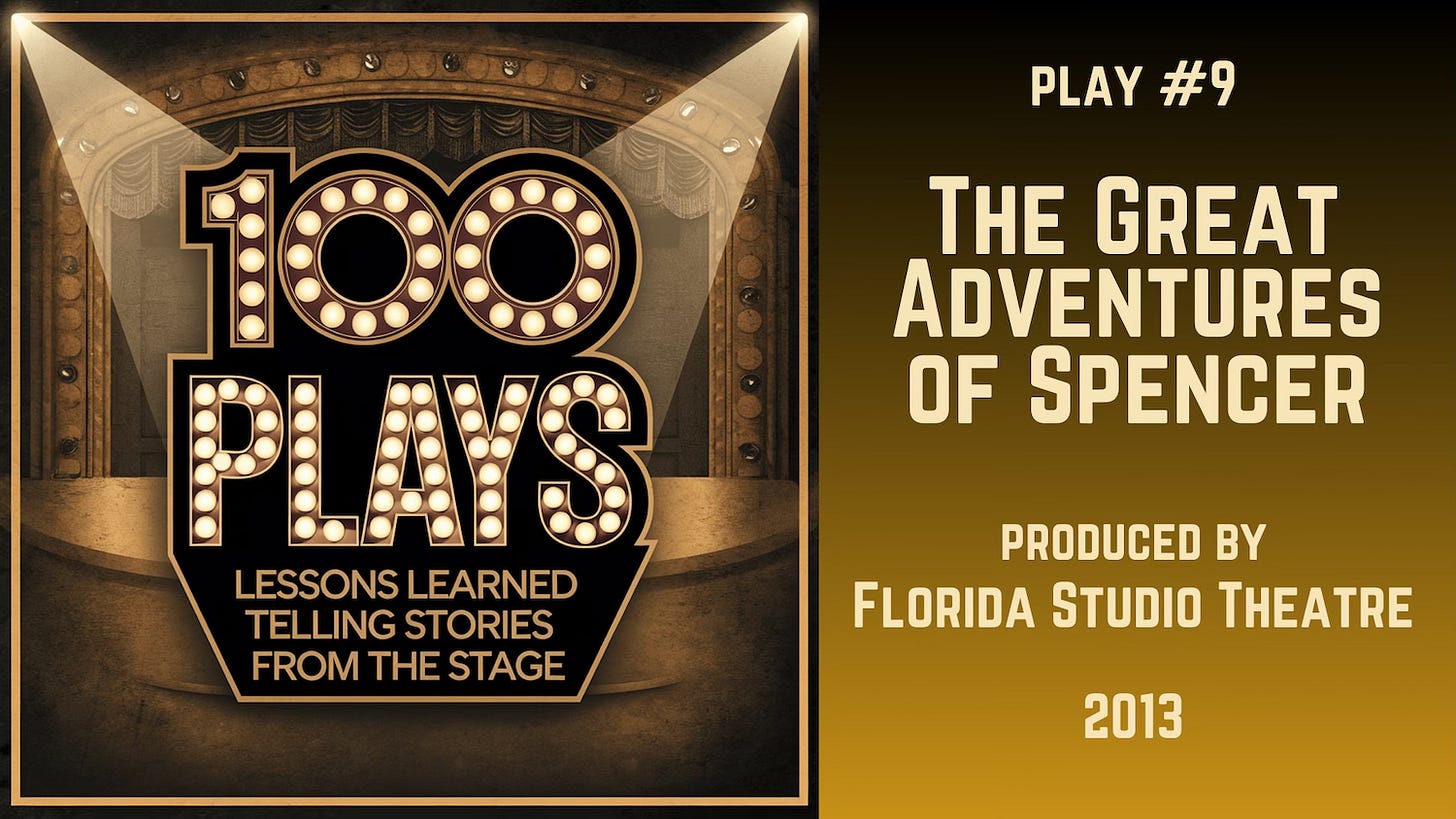Still haven't found what I'm looking for
Tips, tricks, inspiration, and encouragement for storytellers of all stripes
Greetings from Sarasota—
I get asked about imposter syndrome all the time. By actors. By memoirists. By playwrights and public speakers.
In class, it happens weekly. One student reads or shares, and the next up mutters, “I have to follow them??”
We think others are so brave and amazing when sharing their stories. We think our stories pale in comparison or don’t matter.
I bash against imposter syndrome in my own work. Maybe not daily. But definitely weekly.
Like every time I start putting one of these newsletters together.
Why would anyone bother reading this?
This psychological pattern is technically not a syndrome, by the way. There’s no formal diagnosis. It’s not an incurable condition or disease.
So I prefer imposterism. Because that “-ism” suffix reflects the honest underbelly of this insidious feeling. It’s more doctrinal. Theoretical. Behavioral.
When asked, here’s what I offer. A simple reframing:
Imposter syndrome—imposterism—is a sign you’re on the right path. Self-doubt is evidence you are doing the work.
I’ve shared this quote before, but oh my goodness it’s just so good…
The greater the artist, the greater the doubt. Perfect confidence is granted to the less talented as a consolation prize. —Robert Hughes (kick-ass art critic)
I would add my own take on “perfect confidence.”
Those who project perfection? Those who claim to be faultless or impervious to mistakes?
Grifters. Charlatans.
Whenever someone in any arena—artistic, political, athletic—says they’re beyond reproach? That’s a perfectly huge, perfectly red flag. Huge enough to hide their insecurities. Red enough to distract you from their inauthenticity.
Imposterism is ego disguising itself as humility.
We pay baseball players hundreds of millions of dollars to bat .290. We pay basketball players hundreds of millions of dollars to shoot 40% on 3-pointers.
And how often do we hear commentators express admiration for the players who strike out or loft an airball… but then come right back and swing or shoot again?
One of my favorite all-time albums is U2’s The Joshua Tree.
This album altered rock music. It’s considered a towering masterpiece by basically everyone (though I don’t know what Robert Hughes thought).
But check it out…
Did you know Bono almost cancelled the album’s release because he was convinced it was full of mistakes?
Did you know “With or Without You” was almost tossed in the trash because they couldn’t get the sound right? They stumbled into their sonic solution when The Edge started noodling around with a prototype “Infinite Guitar” that a buddy had gifted him.
Did you know the band had to physically restrain producer Brian Eno from wiping the tapes of “Where the Streets Have No Name” because he was so sick of them trying and failing to get it right?
Did you know “I Still Haven’t Found What I’m Looking For” was originally a mess? The only part of the first demo they kept was the drums, and they painstakingly built the song layer by layer, until they had a complete instrumental track. Then Bono began to riff, improvising lyrics until he collided with the words he didn’t even know he wanted.
Earlier I offered that imposterism is a sign you’re on the right path, and that it’s also ego pretending to be humility.
Here’s the thing…
Just like those songs on The Joshua Tree, and just like the entire album itself, you usually won’t know what the right path even is until you’ve started walking it. And even then, there will be obstacles, detours, dead-ends, and backtracking.
And accepting that the “right path” is a discovery rather than something you know in advance? That masterpieces are recognized in the rearview mirror?
That is true humility.
Swing. If you strike out, swing again. If you hit a homerun, take your trot around the bases… and then swing again.
Tell your story. Put your work out there. And when that icky imposter feeling frollicks through your guts?
Press “publish” anyway. Just like I’m about to.
100 Plays
The next episode of 100 PLAYS will hit your inboxes first thing Monday!
In this episode, I talk about the how a story can change someone’s life, the honesty of young playwrights, and the best stage direction I’ve ever read.
You can listen on the Substack App, and all episodes are also available on Apple or Spotify.
Or, if you want to put a face with a voice, the video version will be available on YouTube.
The Page&Stage Podcast
A reminder to check out my conversation with the amazing Milton Justice—
Emmy and Oscar-winning producer Milton Justice joins me to share the remarkable, chance-driven path of his life in theater and film. From studying with Stella Adler to teaching his own philosophy of acting, Milton offers profound insights on craft, career, and the power of saying “yes.” Packed with wisdom, humor, and stories from a legendary journey, this inspiring episode is a must-listen for anyone passionate about the arts.
You can listen on the Substack App, and all episodes are also available on Apple or Spotify.
Or, if you want to put faces with voices, you can watch the video version of this podcast over on YouTube.
And if you’re enjoying or finding value in the Page&Stage Podcast, please leave a review. They truly help! Just click the purple button below to open Apple Podcasts and scroll down to Ratings and Reviews.
Before I sign off, two quick reminders—
REMINDER 1: you can comment on this newsletter. I do my absolute best to respond to every comment, so if something I’ve offered above tickles that question-comment-complaint nerve in your reader-brain, I’d love to hear about it. Let’s get into a fun conversation.
REMINDER 2: I take requests! If there’s a storytelling topic or issue you’d like me to address—writing, acting, directing, speaking, whatever—email me directly at jason@jasoncannon.art. If I don’t have a ready answer, I’ll make it my mission to go find one.
Thanks as always for reading, and have a great weekend—
Jasonism Cannonism


